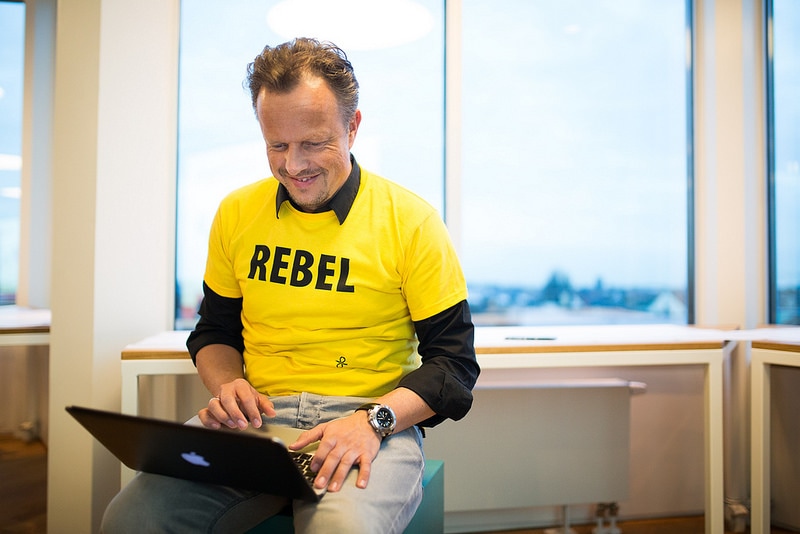|
Written By: Deidre Prewitt, MSMFC, LPCC
The holiday season can be stressful on any relationship, much less one that is already struggling. We have to contend with colder temperatures, less daylight, and making great holiday memories. For some of us, even television commercials serve as a constant reminder that we must create a "perfect" holiday experience. Couples who already feel distant from one another may find it difficult to put effort into their relationship when so many other things are vying for their attention. The holiday season can be a time for connection and renewal; if we are purposeful about putting effort toward improving the relationship at home. I've put together a few suggestions that may help you and your partner get the best out of this holiday season. Choose Your Partner With the holiday, many of us experience more time with extended family. This can be a positive experience for some; while many find this increased family togetherness very stressful. Knowing the challenges both you and your partner may face is very important to adequately plan for a positive experience. While planning events, plan for emotional first aid for both of you. If you know that your partner wrestles with depression when their hypercritical mother visits or seems to crumble under the weight of their father's disappointment, talk to your partner about it. Allow them to vent to you without dismissing or minimizing their experience. Allow yourself to see your partner's pain. Ask them what they need to get through this experience. Create an alliance and develop a strategy that will reduce the stress of the interaction. Questioning why your partner allows this person to push their buttons may not help as much as understanding that this person pushes their buttons. Our families know exactly how to push our buttons because they are the ones who installed them. Many couples struggle with difficult family relationships because they do not realize that their bond is being tested. The "divide and conquer" strategy will succeed in pulling you apart if you are not prepared. Use the stressful events to bring you closer together and solidify the bond between you. Choose Your Battles The stress of the holidays can dramatically increase the conflict in an already stressed relationship. Pay attention to one another. If your partner is particularly stressed before an event, this may not be the time to argue about finances. Your concerns are valid and should be addressed; at the appropriate time. If you are already hurting and lonely, arguing about the holiday menu may feel like salt in an open wound. Set aside calm time when you, your partner, and your relationship are in a good space before discussing potentially controversial topics. When you give yourself and your partner time to calm you may find that the topic is not as important as it seemed originally. This may require a cost/benefit analysis. Consider asking yourself a few questions before engaging in this way.
Choose Your Boundaries Many conflicts over the holidays begin when we do not have adequate boundaries. If one family member seems to want to remind you of your failures and make you feel bad; limit your interactions. If a particular event makes your stomach turn each time you attend, you may want to consider opting out. This is your holiday too. It may not be in your best interest to force yourself to interact with family members that put you or your spouse down. Know what is acceptable behavior to you and resist the urge to succumb to the pressure to make others happy. . If your family is toxic that does not mean that you have to let effect you. You have the option to choose to allow that toxicity into your relationship. Honestly, not having boundaries between your relationship and your family can prove to be detrimental. Many couples struggle because parents, friends, jobs, hobbies, or other things come before their relationship. The holiday season can be a welcome distraction from a struggling relationship but ignoring your challenges may be detrimental. Find time to feed your relationship so that it can emerge stronger when the holidays are over. What you feed will flourish, what you starve will suffer. Choose to create protective boundaries around your relationship to help it to survive. Holidays can bring on good and bad stress. Having difficult relationships with the ones you love can very easily make this time of year more difficult. Creating a secure base in your relationship can help to make this time a little easier. Your relationship can be the safe place you need to reduce the stress of the season, if you put the effort into it. Its like building a house. Houses can be great shelters from the elements, if it is built. Build your house and protect yourself from the rain. Follow us on Facebook, Instagram, or Twitter for more tips to help your relationship survive this holiday season. If you are in or near Columbus, Ohio and need help with your relationship Click Here.
0 Comments
In honor of Father's Day I thought I would write something for my guys.
Long before college I knew I wanted to be a couples' therapist. I absolutely loved the idea of sitting in a room with two people who seemed so far away from one another and watching them get closer and closer. One of the most compelling reasons relationship counseling is my chosen specialty is because I noticed guys do not get to say much in their relationships. We know the old adage "happy wife, happy life" which is true, but what about happy husbands? It seemed to me that many guys are expected to be the silent partner in relationships. In counseling couples I've noticed some wives are vocal about her needs and those needs are frequently the topic of discussion. Many husbands couldn't, or wouldn't, or just didn't voice their needs and wants as much. But why? I spent many years searching for the answers only to find very few texts that helped me to understand men in general and a minuscule amount that explained men in relationships. So I made it my mission to find out how I could help the guys in the relationships I see. I wanted to help give them a voice too. After years of searching and practicing I found several things that needed to be addressed if we (spouses, partners, the mental health community, etc.) were going to be effective with men. Keep a respectful tone Men respond best to respectful words and tone. It seems so basic but many times we forget this. Most men's ears are very tuned into tone of voice and will make meaning of it almost instantly. Some struggle with hearing the message if the tone is not respectful. Tone can make or break a relationship. Honor the way he sees the world Most men did not grow up in environments in which their emotions were encouraged or even appreciated. They were told they were weak or out of control if they showed the wrong emotion. This may have helped to shape how he feels about emotions in general. Being in a relationship may be much harder than we give him credit for. He is supposed to love someone but may have been taught not show his feelings. What??!! No wonder he may choose to keep feelings completely out of the discussion. It helps to appreciate his efforts when he feels safe enough to share. Allow him his dignity Watching a spouse completely berate a man sends a cringe that moves from the bottom of my feet to the ends of my curls. Some relationships have lost so much dignity I swear I am watching a parent correct their child. We sometimes revert to our most unhealthy patterns while upset. Having a peaceful discussion about issues gives us the best odds on a positive outcome. Men are amazing and complex. Keeping these points in mind may create a safe place where a man can share what he thinks and feels. I believe we could all have better relationships if we respect each person's individuality and need; and this includes the men in our lives. To all of my men out there who are raising a child (biological or not) I wish you the best Father's Day! I almost died. We almost died. It would have been all my fault. Maybe I'm being dramatic. The point is: We were careening down a steep hill toward the murky depths of Deer Creek and I was totally out of control. Here's what happened. My husband and I were away enjoying a romantic weekend getaway without our children. We had a room at the lodge with a view of the pool and plenty of time to enjoy one another's company. We could have peaceful, quiet time with no distractions. I would have none of that. If you've read my blog about the REI trail you know I live for a little adventure and my adventures can turn into misadventures really quickly. If you haven't read it, you should; as it is nothing if not entertaining. Click here. But I digress It was a beautiful day in a idyllic setting so I suggested we go on a bike ride. I saw the resort rents tandem bikes and thought how romantic it would be to ride around the lake together. When I suggested it my husband gave me the side-eye and reluctantly agreed. I bounce off to the front desk to complete the paperwork while my loving husband unleashes the tandem bike from the bike rack. When I return he has it all set up and ready to go. I snapped the picture (above) and hop on the front seat because I wanted to drive. Although I didn't look back to see it, I now imagine my husband had a flash of anxiety across his face. Off we go! Very soon I realize that steering a tandem bicycle is not a strength of mine. I began to consider the idea that my husband's skills may be better suited for this job, but I didn't want him to take it from me. Honestly, I wanted to be in control. We did a test run around the parking lot and I started to feel a little more comfortable. I led to the path toward the water. This is the part where my husband starts telling me to slow down. I listened but the steep hill did not. Now, instead of slowing down we are quickly picking up speed. Before I know it we are lurching down the hill toward the lake at (what seemed like) break-neck speed. I shout "Honey, I can't slow it down!" To which he replied "Hit the brakes!" At this point several other couples are now watching and listening to this exchange.They are watching with faces that read a mix between horror and amusement. I then realize that I forgot to make note of the brakes, because they are not on the handlebars where they are supposed to be. I yell "where are the BRAKES!??!!" My husband patiently responds "Baby, peddle backward." Ohhhhhhh When I applied the brakes the tandem bicycle stopped. I jumped off as if the bicycle was on fire and quickly took the back seat. It all became quite funny to me and the lesson was apparent. I am so used to taking charge of everything and taking responsibility for everything it never occurred to me to share the responsibility with my husband. Much of my life is living on my own terms as a entrepreneur in my own private therapy practice. I forgot I have a very capable partner in life who is willing to shoulder some of the burden of life with me. I did not get married to do life by myself. It did not turn out better when I did it all myself and felt like I had full control. Many of the couples I see for counseling struggle with the same issue. Both partners are high achievers; in leadership or own their own businesses. They have power and control of their own lives and the lives of others. When it comes to their relationship they get locked in a power struggle and wonder why they feel like their relationship is hurtling down a hill toward a murky lake. My job is to help them learn that they can and should depend on another. We all have struggles and need to be reminded that we are not alone in life. We have a partner to "do life" with. It is OK to let your partner lead every once in a while. Update: My husband is now the Operations Director for Reconnecting Columbus, so he has now taken a permanent front seat on this "ride" together. In Part One I wrote about those of us who lack self-care turning to their spouse to have all of their needs met. This time around I discuss what happens when you realize your partner cannot meet all of your needs and look for other ways to fill the void. When we ignore our own needs we feel empty and we look for other ways to fill the voids we experience. In providing affair recovery therapy I have found many unfaithful partners lacked adequate self-care.
Most people think of self-care as simple behaviors like exercise or sleep. Yes, that is a part of it but that is not the whole picture. True caring for self is addressing all of our needs; including emotional, psychological, and relational needs Adequate self-care is really about finding the voids in your life and finding a healthy way to fill those voids. Many couples come to counseling and one or both expect their partner to fulfill every need they have. The unmet need for love, attention, and affection is especially dangerous when you are in a relationship. Many affairs have started this way. We need to matter to someone, feel important, and valued (self-esteem). Many affairs promise these needs will be fulfilled, but over time the void is rediscovered because this is an internal job. People who lack sufficient self-care are many times people-pleasers, martyrs, or self-sacrificing heroes/sheroes. They may tell themselves it is wrong to spend time and energy on themselves. Their do not see their own needs or create boundaries that support their well-being. These folks with these invisible needs may search their whole life looking for something to fill that need. That "something" could be abusing substances, busying themselves with children, becoming a workaholic, or taking on a lover. At any rate, the primary love relationship suffers because this partner is no longer completely invested in the relationship. The "something" has taken their partner's place as the most important thing to them. If someone is able to recognize the deficits in their life, and incorporate adequate self-care to reduce the deficit, the relationship is more likely to survive. One would need to find wholeness and feel complete in themselves to combat the temptation of the quick fix the "somethings" promise. Beginning and maintaining sufficient self-care can create a beautiful relationship of two whole, healthy people.  Self-Care Self-Care Well, I'm glad you asked. If you are reading this you may need to be convinced or need help convincing someone else that taking care of yourself is necessary to have a healthy relationship. Taking care of yourself is relationship enhancement and will help to prevent its destruction. Your favorite airline makes sure you hear the words "put the oxygen mask on yourself first". Why? Because you cannot save anyone else if you perish. The same principle can be applied for relationships. If you always put others' needs ahead of your own, you may destroy the very person they depend on.....you. As a marriage/couple counselor I see many relationships in distress because one partner has taken on the self-sacrificing hero/heroine role and resents their partner for not doing the same. Over time many couples find they are building resentment and anger that has all but destroyed the relationship. One partner experiences the demand for love and attention are far too high. The other (the martyr/hero/heroine) feels their needs are never adequately met. The second partner desperately attempts to hold on tighter while the first partner feels suffocated. Ok, but if I'm focusing on me won't my marriage suffer? No, not if you are responsible about it and your life is in balance. I f you are constantly running on empty you may look to your spouse to fill all of your empty buckets that you have neglected. As an example, if you are not taking care of yourself emotionally you may learn to depend on your spouse to manage your emotions for you. You may find yourself saying something like "I am not fulfilled in this relationship". Looking for complete fulfillment outside of self is dangerous. You have everything you need to be happy and healthy already inside you. A healthy relationship is a complement to your life not completion of it. Neglecting yourself mentally, physically, emotionally, spiritually, professionally, and/or psychologically could make you take more from your partner than they have or are willing to give. The truth is: one must find balance in life. Maintaining health in all aspects of life allows you to be a whole person where you can give freely and fully. A person lacking in self-care can drain a relationship and leave both partners drained. You owe it to yourself and your relationship to address your own needs before you can begin to address needs of others. If you are ready to begin the journey to well-being and want to join us (online or in-person) in the next self-care group click here to learn more about the groups starting in mid-October. If you realize your relationship is struggling and want to learn more about the specialized relationship counseling I provide in Columbus, Ohio click here.
|
AuthorDeidre A. Prewitt, MSFMFC, LPCC Archives
September 2019
Categories
All
|








 RSS Feed
RSS Feed
